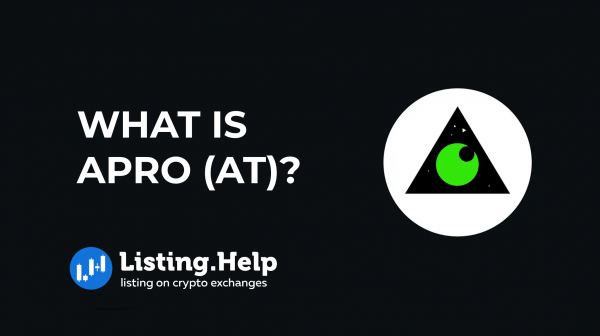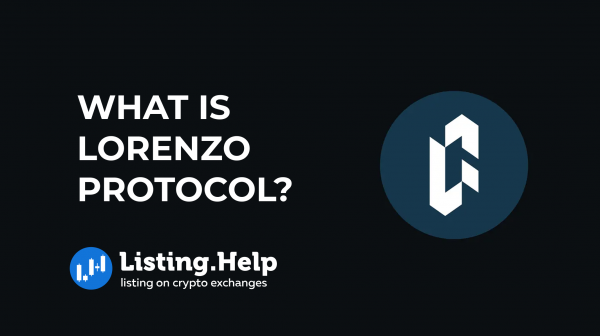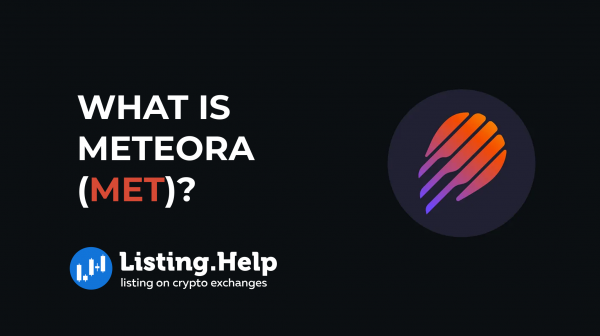What is Jupiter (JUP)?
 January 21, 2025
January 21, 2025 Updated: January 28 2025, 06:43
Updated: January 28 2025, 06:43
LEAVE A REQUEST
Launching your own token project? Our experts are ready to help with listing on exchanges, market making, marketing and other solutions
SUBMIT APPLICATIONJupiter (JUP) is a decentralized finance (DeFi) platform built on the Solana blockchain. It acts as a liquidity aggregator, simplifying and enhancing trading within the DeFi ecosystem. By combining resources from multiple sources, it enables more efficient and seamless token swaps, trading of perpetual futures, and access to decentralized stablecoins. The platform’s governance token, JUP, gives holders the ability to influence key decisions regarding the platform’s growth and operations.
History of Jupiter (JUP)
Details about the Jupiter team are scarce, as they maintain a low profile regarding their backgrounds, investors, and development journey. However, they compensate for this privacy with comprehensive documentation. Their white papers and blog posts showcase years of dedicated work on the project. What stands out most is the team’s strong connection to Solana and their deep experience with crypto exchanges. Their passion for building and optimizing DeFi tools on the Solana network is evident throughout their work.
How Does Jupiter (JUP) Work?
Jupiter can be accessed either through its official website, Jupiter Station, or via the dedicated app. Both options provide a straightforward connection to a network of smart contracts within the Solana ecosystem. These smart contracts handle essential functions, including wallet integrations and token trades.
Jupiter also collaborates with other developers to expand its functionality. It offers five APIs, such as one for real-time pricing and another for setting limit orders during token swaps. Users can interact directly with Jupiter, but its capabilities are also available as a service for third-party projects. Developers can integrate Jupiter into their platforms to streamline token swaps and related operations.
How is JUP Used?
The platform’s governance token, JUP, underpins its decentralized exchange (DEX) aggregator on Solana. Holders of JUP tokens can participate in decision-making processes for the platform. This includes voting on emission schedules, protocol upgrades, new project launches, and the distribution of ecosystem grants. The token gives the community a voice in shaping Jupiter’s development and operations.
The JUP token is traded on many exchanges, including Indodax, Bitmart, BingX, CoinDCX, HTX, and Bitrue.
Features of Jupiter (JUP)
Jupiter includes a range of features designed to make trading more efficient and flexible within the DeFi ecosystem.
Swap
The swap aggregator lets users trade between multiple tokens. By browsing the marketplace, users can select tokens at competitive prices and initiate swaps. For example, swapping Solana-based tokens for USDC is made straightforward with reduced fees and minimized slippage. Users can adjust settings such as routing preferences to tailor the process.
Limit Order
Limit orders provide a level of automation for token trades. Users can set specific price thresholds for buying or selling tokens, and the platform fulfills the order when the target price is reached. This ensures opportunities aren’t missed when favorable prices are available.
Dollar-Cost Averaging (DCA)
The DCA feature allows users to automate trades over time. By scheduling recurring purchases or sales, users can spread their trades across intervals, reducing exposure to market volatility. This approach ensures a consistent trading strategy without the need to time the market precisely.
Bridge
Jupiter also supports token bridging, enabling users to transfer assets across different blockchains. This feature is particularly useful for developers and users managing tokens in multiple ecosystems. By bridging tokens, liquidity and assets can be moved seamlessly between chains.
Perpetual Exchange
Jupiter includes a perpetual exchange built on Solana. This system allows for efficient token trading using liquidity pools while supporting market stability. Traders can also access leverage of up to 100 times, providing advanced options for experienced users.
JLP Pool
The Jupiter Liquidity Provider (JLP) Pool facilitates trades on the platform. Users who contribute tokens to the liquidity pool temporarily lock their assets, which are then used in swaps. In return, liquidity providers earn fees generated by these trades, offering an incentive for participation.
LST Stablecoin
Jupiter features its own yield-bearing stablecoin, LST, pegged to the US dollar. This Solana-based stablecoin supports trading activities and can also be used for interest-free loans, collateral, and other financial operations within the platform.
Jupiter’s diverse features and integrations make it a flexible tool for users and developers alike, enhancing the DeFi experience on Solana.
Jupiter (JUP) Token Airdrop
Jupiter recently introduced its governance token, JUP, as a way to involve the community in platform decisions. To celebrate the token’s launch, the platform has announced a community airdrop scheduled for January 31, 2024. During this event, all registered Jupiter users will receive 200 free tokens. Additionally, users who have had at least $10 worth of assets on the platform or completed a minimum of 10 transactions before March 2022 will qualify for an extra 500 tokens.
Claiming tokens during the airdrop is straightforward. Users simply need to log in to the Jupiter airdrop portal, where the system will calculate their eligibility. Some active participants in the community have received as many as 100,000 JUP tokens based on their contributions.
Teams exploring how to list your token on an exchange can take inspiration from Jupiter’s efforts to foster participation and awareness.
Jupiter Road Map
Jupiter’s road map has previously focused on initiatives like expanding support for ERC-20 tokens and improving the platform’s security measures. Moving forward, the direction of Jupiter’s development will largely depend on input from its community and the Solana ecosystem. JUP token holders play an important role in shaping the platform by voting on new proposals.
Future plans include adding more cryptocurrencies and expanding developer tools, reflecting the need for collaboration and innovation. For projects considering crypto exchange listing services or preparing to meet listing requirements on large exchanges such as Binance, Kraken and OKX, Jupiter’s roadmap serves as a strong example of how community-driven growth can shape a platform’s success.

For more insights and updates on the crypto world, don’t forget to check out our blog at Listing.Help







 March 1, 2026
March 1, 2026 








